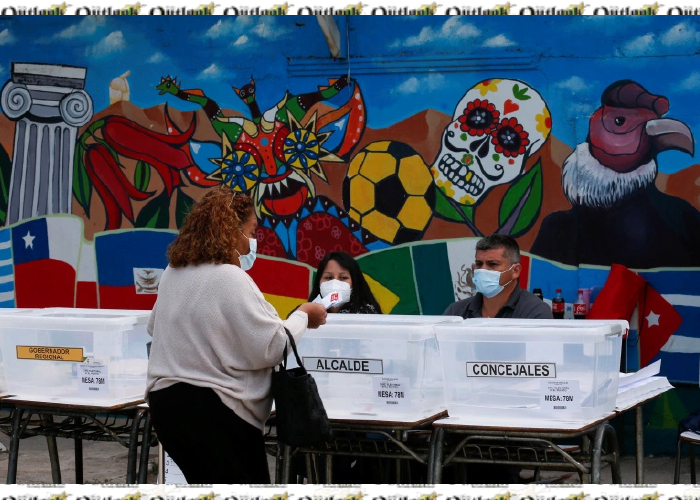Chileans are voting on Sunday in a second day of polls to elect 155 delegates to the Constituent Assembly, which will rewrite the country’s dictatorship-era constitution in a bid to address deep-seated social inequality that sparked deadly protests in 2019.
About 14 million people are eligible to vote this weekend in what many consider to be Chile’s most important election since its return to democracy 31 years ago.
More than three million people, or approximately 20.4 percent of the electorate, cast their ballot on Saturday, according to the country’s Electoral Service.
“I hope that we have a constitution that captures the soul of our nation,” President Sebastian Pinera said after casting his ballot in the capital Santiago.
Silvia Navarrete, a 35-year-old economist, was at a Santiago polling place with her young daughter in her arms.
She said she had voted for a system that “works for everyone, allowing all voices to be heard” and ensuring “that rights and duties are really fair for all human beings”.
Forty-year-old university professor Carlos Huertas said his ballot went to candidates who had been active in “this social revolution” – referring to the 2019 protests.
Chile’s constitution dates from 1980, enacted at the height of dictator Augusto Pinochet’s 1973-1990 rule, and is widely blamed for blocking equitable progress in a country ranked as one of the most unequal among advanced economies.
This inequality was one of the main drivers of the October 2019 protests, resulting a month later – after 36 deaths – in the government agreeing to a referendum on a new constitution.
That plebiscite, initially scheduled for April 2020 but delayed due to the coronavirus pandemic, finally took place on October 25 last year.
The outcome was unequivocal: 80 percent voted for a new constitution to be drawn up by a body made up entirely of elected members.
Gender parity
This weekend, more than 1,300 candidates are in the running to become a part of history.
Analysts say the election will be a battle between candidates from parties on the left and the right, with independents not expected to draw any meaningful support.
Parties on the left broadly seek greater state control of mineral and other natural resources – mostly privatised since the dictatorship – and more public spending on education, health, pensions and social welfare.(Aljazeera)
Home » World » Chileans Vote for 155-Member Assembly to Draft New Constitution
Chileans Vote for 155-Member Assembly to Draft New Constitution

